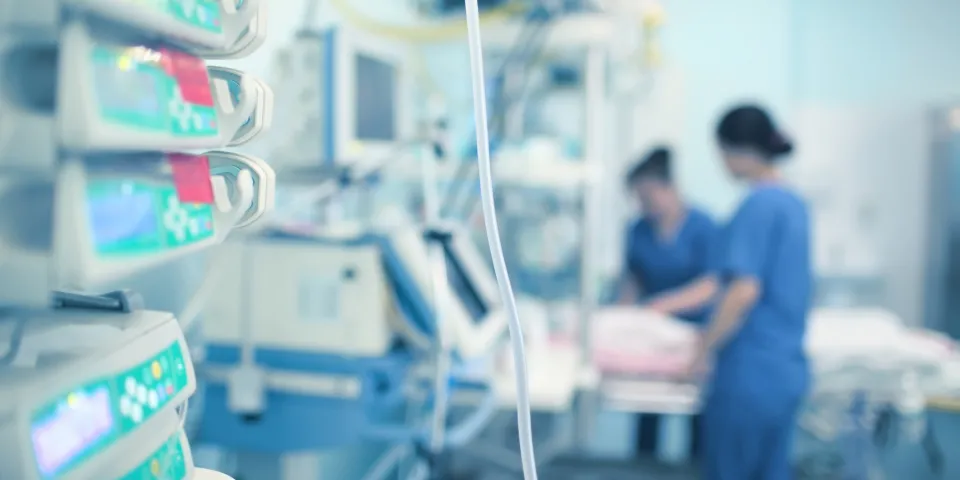Latest 
 Career Development Denise Alexander
Career Development Denise Alexander
Recent Blog Posts


Once you become a licensed registered nurse (RN), there are many different career paths and specialties you can choose. Some RNs choose to work in traditional healthcare facilities, clinics, schools or other institutions or continue toward an advanced nursing degree. Nurses who work in hospitals could be assigned to units or floors dedicated to cardiology, trauma, labor and delivery, intensive care, neurology, and more. Others – usually more experienced nurses – float between units as needed.
Jordan Sharon, who earned her Bachelor of Science in Nursing (BSN) from Herzing’s Orlando campus in 2018, explains why she chose to become an intensive care unit (ICU) nurse and what it’s like to work in the unit.
One of my first experiences with the ICU happened back when I was still in high school. My brother underwent spinal fusion surgery and landed in the ICU with complications. As he recovered, I noticed the compassion shown by the nurses and the time they spent with him. It really opened my eyes to the valuable and rewarding work that nurses do.
Later on, when I was in nursing school at Herzing’s Kenosha campus, I completed a variety of clinical experiences at a nursing home, a rehabilitation floor, a transplant unit and more. I realized I wanted to work in the ICU during my eight-week practicum at a regional hospital because I enjoyed being challenged every day. The practicum showed me that I would learn something new during every shift in the ICU. I also saw the impact that ICU nurses have by saving lives and providing patient care right there at the bedside.
When I start my shift each day, I go straight to the charge desk to receive my patient assignments from the charge nurse. I then find the night shift nurse who cared for my patients the night before, and we go through their reports on each patient’s admission date, history, trends and current status. This assessment helps me prioritize and organize my day. Once I’ve given a quick look at the reports, I go check on all of my patients immediately to make sure they’re stable and that their current condition is consistent with the report I received. After that, I visit each patient again and administer their medications.
Once I’m done with the shift change and my initial patient rounds, I’ll typically go back to the nurse’s station and review each of my patient’s medical charts in depth. I try to understand the bigger picture of how the patient is doing, how their labs have been trending and what their specialists have been saying. When the doctors start doing their rounds, I can help answer questions and get any of my questions answered too.
The rest of my shift usually entails continuous rounds with my patients, which includes administering medications again, monitoring their vitals, helping them with bathroom visits, etc. I end by completing my final charting and providing the night shift nurse with the same type of report I received that morning.
Since I work in the medical ICU at my hospital, I usually care for one to three patients a day depending on their condition. For example, patients who are on continuous dialysis require one-on-one care. I often treat patients who are experiencing cardiac issues, kidney, liver or respiratory failure, among many other life-threatening conditions.
One of the nice things about being an ICU nurse is that you typically have fewer patients each day than you would in another unit, which means you have more time for each person and you get to form deeper connections with them. Also, because I often work three 12-hour shifts on consecutive days, I have an even greater opportunity to connect with my patients, understand what they need and provide the best quality of care possible.
I also find the ICU to be incredibly rewarding because patients in this unit really need our care, whereas sometimes in other units the patients don’t need as much help.
The hands-on skills labs at Herzing were invaluable. I learned to do Nasogastric (NG) and Orogastric (OG) intubations, IVs, and how to insert and remove Foley catheters, all of which I do every day in the ICU. The instructors at Herzing also emphasized how to thoroughly complete head-to-toe assessments for patients, which directly translated to what I’m doing now during shift changes. We practiced these many times, which was helpful because every hospital or facility has a specific method for these assessments, but I know exactly what I need to be doing and looking for regardless of where I’m working.
One of the most rewarding aspects of my job is the comfort care we provide to patients, especially those who are nearing the end of their life. While we don’t provide hospice care, I do everything I can to make sure these patients are as comfortable as possible.
Earlier this year, I took care of a very ill elderly patient who wasn’t recovering. A member of her family personally thanked me for caring for her and said “you were truly made for this.” I took it to heart, and the gratitude they expressed reminded me of why I do this job. Even though it’s incredibly challenging, it’s important work that has an impact on not only your patients but also their families.
I’m a fortunate person in that I’m able to leave my work at work at the end of the day. I know some nurses struggle with this, but I think it’s important to be able to compartmentalize your work from your personal life. My ability to empathize without getting so consumed that it hinders my judgment or ability to do the job is one of my strengths as a nurse.
I also try to exercise on all of my days off – it really helps relieve stress!
If you want to work in the ICU, you have to be comfortable with death because it’s an inevitable part of the job. It’s also important that you’re able to manage your emotions so you can be strong for your patients and their families.
Second, to be a good ICU nurse you have to develop exceptional time management skills, and you have to be flexible because no two days are ever the same and you never know when you’ll have to drop everything to prioritize a life-threatening or other immediate situation.
BLS pay estimates calculate the median annual wage for various occupations. Per the BLS the median wage for an occupation is: "The wage at which half of the workers in the occupation earned more than that amount, and half earned less. Median wage data are from the BLS Occupational Employment and Wage Statistics survey." Bureau of Labor Statistics (BLS), U.S. Department of Labor, Occupational Outlook Handbook 2024. BLS median wage estimates do not represent entry-level wages and/or salaries. Multiple factors, including prior experience, age, geographic market in which you want to work, and degree level and field, will affect career outcomes, including starting salary and earnings as an experienced employee. Herzing neither represents that its graduates will earn the median salaries calculated by BLS for a particular job nor guarantees that graduation from its program will result in a job, promotion, particular wage or salary, or other career growth.
Get the latest news you need to know, from study hacks to interview tips to career advancement. Have it delivered right to your inbox biweekly.